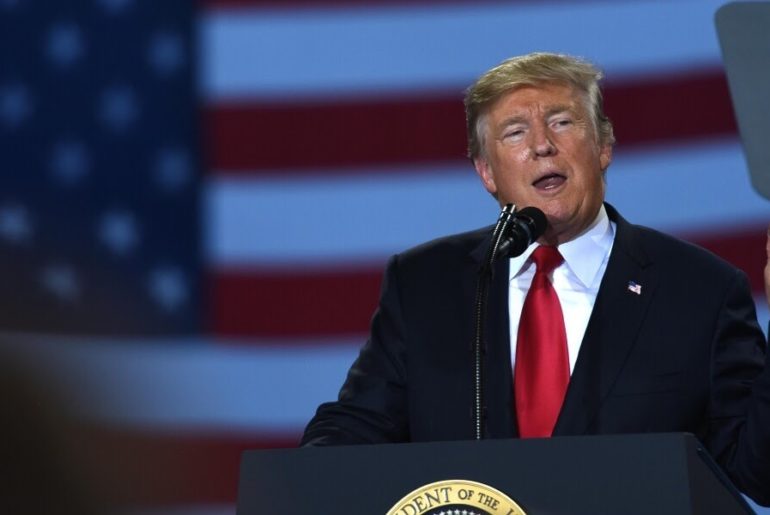Last month the Trump administration announced further restrictions on their immigration policies, affecting thousands of current and prospective U.S. visa holders. The ruling, which comes after multiple recent immigration regulations from the White House, was part of the federal government’s response to the coronavirus pandemic.
In the executive order, President Trump called Visa programs that authorize immigrants to legally work in the United states a “threat to American workers” and concluded that those programs should be paused during the next 6 months. He added that Americans are losing jobs to immigrants and the order will revitalize the economy. However, many experts argue that the decision could do the opposite.
“Putting up a ‘not welcome’ sign for engineers, executives, IT experts, doctors, nurses and other workers won’t help our country, it will hold us back,” Chamber President Thomas Donohue told The Washington Post. “Restrictive changes to our nation’s immigration system will push investment and economic activity abroad, slow growth, and reduce job creation.”
Who is affected
The Migration Policy Institute estimates that around 167,000 temporary workers will be affected by the new rules. The restrictions will apply specifically to immigrants with the following visas:
- H1-B visa: H1-B visa is granted to temporary workers working in a speciality occupation. These include, but are not limited to, engineers, medical professionals, and those working in IT and technology. Also affected are the H-4 visa holders, who are the family or dependants of the H1-B visa holder.
- L visa: L visas are granted to employees in managerial positions or those who have specialized knowledge and have been transferred to the U.S. for a period of time.
- H2-B visas: The H2-B visa is meant for people “who meet specific regulatory requirements to bring foreign nationals to the United States to fill temporary nonagricultural jobs.” These include seasonal workers that work in food and hospitality sectors, among others. However, food supply chain workers are not affected by this rule.
- J visas: The J visa is granted to individuals who have been approved to participate in work-and study-based exchange visitor programs in the U.S., including certain summer camps, fellowships and seminaries.
It is important to keep in mind that the new measures apply mainly for people outside of the U.S. that intended to apply or were in the process of applying for these visas. For those in the U.S., as long as their visa is still valid, they shouldn’t worry.
Controversy
Various immigrant activist groups and company spokespeople have expressed their discontent with the measure.
“Extending and expanding a ban on immigrants does not address the challenges our nation faces as we begin the long recovery from COVID-19,” said Ali Noorani, President and CEO of the National Immigration Forum. “Advancing the false narrative that immigrants are competitors only serves to undermine the trust and unity needed to recover quickly and effectively from the pandemic and its economic effects.”
The economic impact of the restrictions would also be considerable. Visa holders in the U.S. contribute billions of dollars every year to the country,on top of putting approximately $12 billion back into the business economy. In Fact, research from the American Action Forum shows H-4 visa holders alone, who are typically spouses or dependents of H1-B holders, contribute an estimated $12.9 billion to the economy.
“America’s continued success depends on companies having access to the best talent from around the world,” Google spokesman Jose Castaneda said in a statement. “Particularly now, we need that talent to help contribute to America’s economic recovery.”
Government agencies are also suffering under the new regulations. The U.S. Citizenship and Immigration Center (USCIS), which functions through the fees and payments of applicants, has had a severe budget crisis because of the changes to immigration policies during the pandemic. The agency, who was already losing millions of dollars a year under the Trump administration before the pandemic, will be furloughing close to 70% of its employees.
“USCIS will not have sufficient funding to maintain operations through the end of the fiscal year,” Russell T. Vought, acting director of the Office of Management and Budget, wrote to Congress in June.
But some people believe that is no mistake.
“It’s because of these new policies — they’ve not only bled the budget, but … it’s like the agency is being set up to not do its own job anymore, and just be another arm of the fear machine,” an anonymous USCIS official told the Los Angeles Times.
What the future holds
For now, the suspension of these immigrant visas will only be valid until Dec. 31, 2020. However, the White House has the power to prolong them for “however much time they see fit”. Additionally, the new policy leaves it to the judgement of the immigration officers to enforce these rules during immigration procedures.

